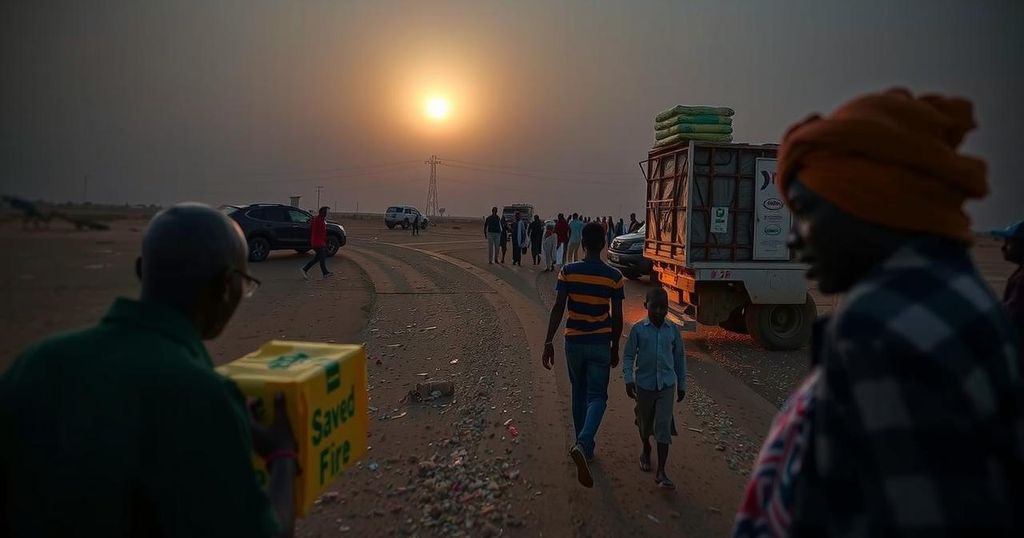Sudan’s government has announced the Adre crossing with Chad will remain open for three months to facilitate humanitarian aid to the Darfur region, which is experiencing severe famine conditions. This decision follows discussions with UN agencies and is expected to support the delivery of critical supplies to approximately 1.4 million people.
The military-controlled government of Sudan has announced that the Adre border crossing with Chad will remain operational for an additional three months. This decision aims to facilitate the flow of essential humanitarian aid into the western Darfur region, which has been severely affected by ongoing conflict and a worsening famine crisis. UN spokesman Stéphane Dujarric praised this commitment, noting it will enable the United Nations and collaborating agencies to deliver significant aid to those in dire need amid escalating conditions. Since its reopening in August, over 337 trucks carrying more than 11,000 metric tons of food and supplies have traversed this crucial route, benefitting approximately 1.4 million individuals.
The conflict in Sudan erupted in mid-April 2023, following a breakdown in relations between military factions. This violence has primarily affected regions including Darfur, which has a historical context of conflict dating back to 2003, leading to severe humanitarian crises. The international community, including various humanitarian organizations, has been increasingly concerned about the dire situation, particularly the famine affecting over five million children and families. The Adre crossing has emerged as a vital access point for aid amidst these challenges, with ongoing calls for increased support and funding to address the humanitarian needs in Sudan.
The Sudanese government’s commitment to keeping the Adre crossing open is a significant step towards alleviating the humanitarian crisis in Darfur, particularly as famine conditions deepen. However, experts stress that this is merely a part of the solution, advocating for the opening of all potential routes to ensure comprehensive aid distribution. The international community’s involvement and increased funding will be crucial in responding effectively to this escalating crisis.
Original Source: www.independent.co.uk






